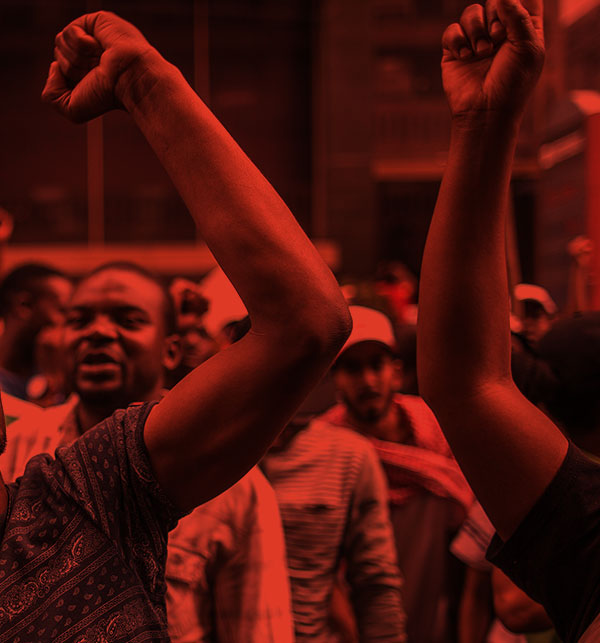The UN Human Rights Council (HRC) took a decisive step to enhance its capacity to respond to human rights emergencies and to prevent crises by adopting a milestone resolution today. The resolution strengthens the HRC’s prevention mandate, highlights the importance of identifying risk factors and root causes of crises, and outlines the role human rights defenders (HRDs) and civil society play in bringing early warning information to the attention of the international community.
“The Council’s recognition of the role of human rights defenders and organisations in raising the alarm on human rights emergencies is of critical importance” said Hassan Shire, Executive Director, DefendDefenders. “Early action and preventive engagement should be the approach of the entire UN system, as the cost of inaction can be tremendous.”
The resolution, which was developed by a committed group of states (Norway, Sierra Leone, Switzerland, and Uruguay), goes a long way toward operationalising the HRC’s prevention mandate. It highlights the contributions the HRC makes to the prevention of human rights crises, emphasises the interlinkages between the three pillars of the UN (peace and security, sustainable development, and human rights), and mainstreams prevention throughout the work of the HRC. It also requests the UN Secretary-General to bring reports of the HRC that have a prevention dimension to the attention of other bodies, including the Security Council.
The resolution requests the Office of the UN High Commissioner for Human Rights (OHCHR) to strengthen its early warning capability and to bring information on patterns of human rights violations and heightened risks of human rights emergencies to the attention of states. In this regard, data and early warning signs emanating from HRDs and civil society play a key role. The resolution stresses the need to protect them from intimidation and reprisals.
“Attacks against HRDs and civil society can in themselves constitute early warning signs,” said Nicolas Agostini, Representative to the UN for DefendDefenders. “States should now apply objective criteria, such as these attacks and other civic space restrictions, to country-specific situations to respond to emergencies and prevent full-fledged crises.”
Lastly, the resolution makes an important contribution to preventive engagement and diplomacy, as it highlights the need for the UN system to support states in building national resilience, as well as the possibility for the HRC to resort to dialogue and cooperation to prevent violations and respond promptly to human rights emergencies.
Ahead of the Council’s 45th regular session (14 September-7 October 2020), DefendDefenders advocated for a strong resolution on the contribution of the HRC to the prevention of human rights violations. Together with partners, we called1 on states to use civic space indicators (including restrictions to freedoms of expression, peaceful assembly and association, and attacks against HRDs and civil society) as objective criteria to assess human rights situations. In this regard, civic space restrictions are often early warning signs of human rights crises.
For more information, please contact:
Hassan Shire
Executive Director, DefendDefenders; [email protected] or +256 772 753 753 (English and Somali)
Estella Kabachwezi
Advocacy, Research and Communications Manager, DefendDefenders; [email protected] or +256 782 360 460 (English)
Nicolas Agostini
Representative to the United Nations, DefendDefenders; [email protected] or +41 79 813 49 91 (English and French)
1 DefendDefenders et al., “Mainstreaming civic space in State interventions at the UN Human Rights Council,” 15 May 2020, https://defenddefenders.org/mainstreaming-civic-space-in-state-interventions-at-the-un-human-rights-council/ (accessed on 7 October 2020).
Download PDF.

